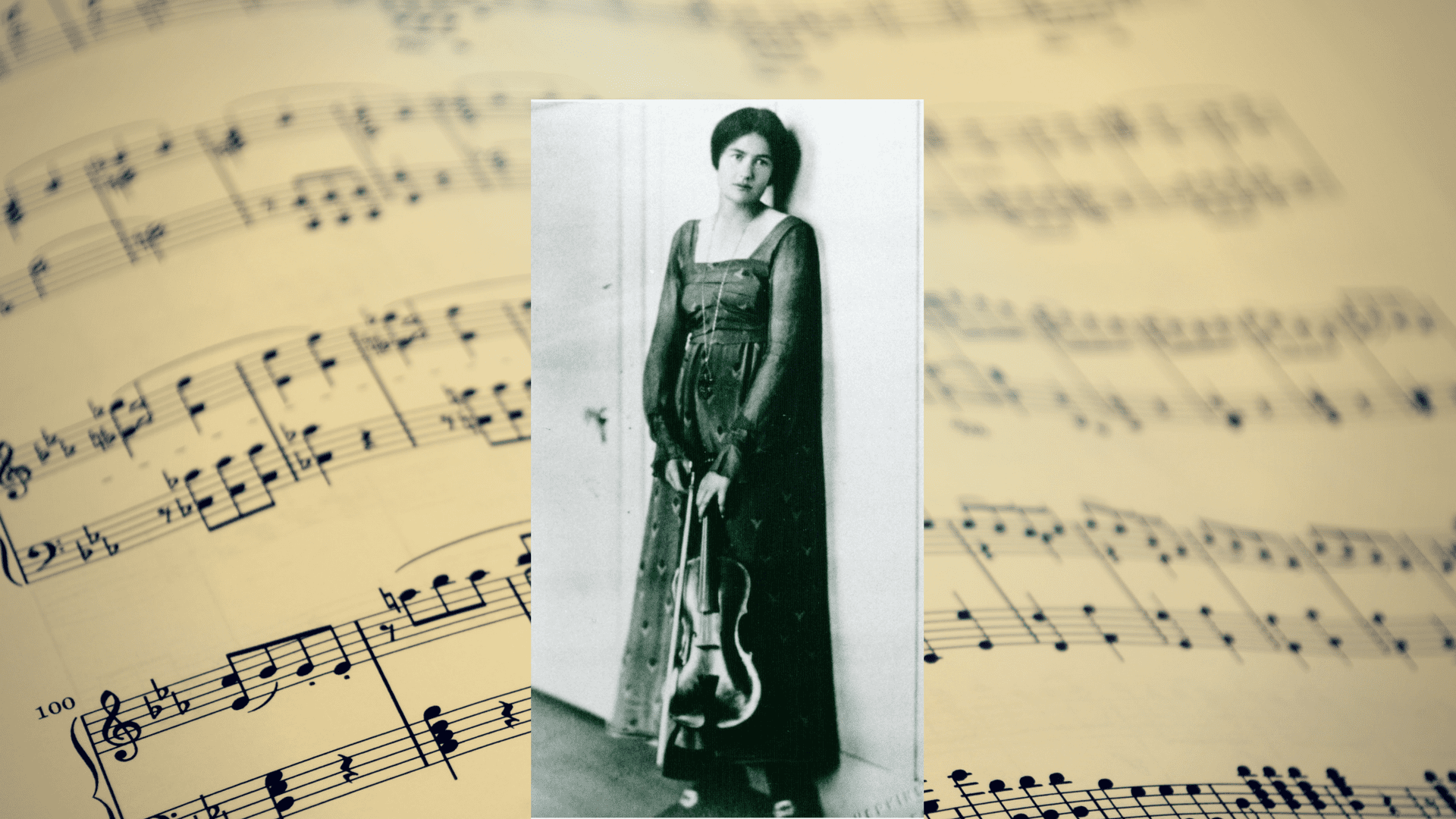Rebecca Clarke is a name many violists know. She was an internationally acclaimed soloist, chamber musician, and composer during post-Victorian Era England. Despite a controlling and abusive father, she was able to leave her mark on the world with her musical achievements.
Rebecca Clarke: Viola Master and Composer

Rebecca Clarke, 1919
Many artists struggle for their voices to be heard and their visions to be realized. For Rebecca Clarke, the strife stemmed from an abusive father and was amplified by the oppressive remnants of Victorian society in which she lived. Born August 27, 1886 in Harrow, England to an American father and German mother, she started her musical studies on the violin at the age of 9. Her father initially encouraged her to participate in music, and supported her when she eventually attended the Royal Academy of Music in her teen years. Two years after coming to the university, however, 27-year-old professor Percy Hilder Miles proposed marriage to the 19-year-old Rebecca Clarke. The proposal was declined, and this is believed by many to be the reason that Clarke’s father pulled her out of the university and enrolled her in the Royal College of Music instead. She would attend the RCM for several years, until Clarke’s father suddenly kicked her out of his home in 1910, which prevented her from finishing her studies. The cause for her sudden removal from home is speculated to be the result of Clarke confronting her father about his affairs with women outside of marriage.
Despite these challenges, Clarke went on to have an outstanding career as a performer and composer. Undaunted by the trials she faced in her younger years, she was able to fully support herself with her viola performances. She became one of the first female professional orchestral musicians in London and was so successful that she toured internationally as a soloist and chamber musician. Clarke spent time in the United States and in Britain prior to World War II, but eventually stayed in America after the onset of the war.
Clarke composed over 50 works, and many pieces of hers feature the viola. For several years after her death much of her work remained unpublished, primarily because of societal opinions about the value of music composed by women. Good music is good music, though, and one piece that has withstood the tests of time and discrimination to be a mainstay of standard viola repertoire is her Viola Sonata. It has lush harmonies, driving rhythm, broad emotional depth, and is right in line with the Impressionist style of the late 19th and early 20th centuries.
Towards the end of her life, Clarke wrote a personal memoir that is unpublished, but kept at her estate for scholars to access. The writings reveal details of her personal life, like what she remembered of her father and reflections on her time at the Royal College of Music. She eloquently outlines the feeling of achievement through composition:
Every now and then, in the middle of struggling with some problem, everything would fall into place with a suddenness almost like switching on an electric light. It may sound pretentious… but at these moments, though I had no illusions whatever about the value of my work, I was flooded with a wonderful feeling of potential power – a miracle made anything seem possible. Every composer, or writer, or painter too for that matter, however obscure, is surely familiar with this sensation. It is a glorious one. I know of almost nothing to equal it.
Several recordings exist of Clarke’s Viola Sonata and, thanks to the efforts of the Rebecca Clarke Society, more of her work has been published recently, and recordings of her music continue to be released.







Leave a Reply